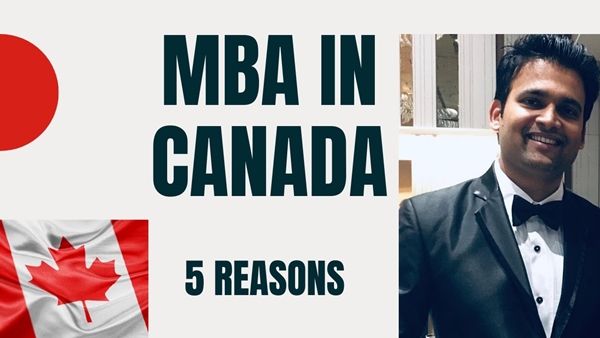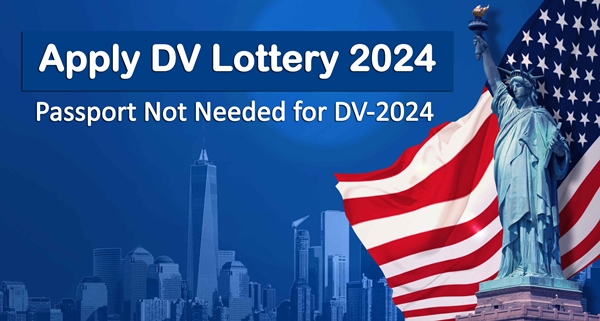
Job Opportunities in Canada for MBA Graduates; If you are an MBA graduate and you are interested in entering the Canadian workforce, then you’re in luck. There is an increasing demand for MBA graduates in Canada, and this is why there are many employment opportunities available. There are various entry-level jobs across Canada. A number of positions offer a healthy salary that will allow you to live a comfortable life while climbing the corporate ladder. So let’s unpack what you need to do to score yourself a position in this increasingly popular field.
Job Opportunities in Canada for MBA graduates
Job Opportunities in Canada; Entry-level positions for MBA graduates range from internships to human resources assistants and consulting service roles, to name a few. The average entry-level salary for MBA jobs is $6, 178 per month.
Have a look at this table to get a better understanding of the job opportunities available and income range for MBA graduates.
Job Opportunities in Canada & Monthly Income Range for MBA Graduates (Entry Level to Experienced)
- Occupation: Average monthly salary
- Consulting services agent: $3,096 – $7,876
- Junior analyst: $3,900 – $5,491
- Research associate: $4,363 – $7,086
- Risk analyst: $4,956 – $9,012
- Director: $5,379 – $12,500
- Paid intern: $3,000 – $4,160
Job Opportunities in Canada; The Master of Business Administration (MBA) is one of the most sought-after programs, providing students all around the world with a variety of professional options. The MBA degree provides students with a thorough understanding of all facets of management, as well as real-world applications and experiential knowledge that drives them to find real business solutions. Here are 10 Easy Steps to Get Your MBA in Canada.
Step 1: Check The Admission Requirements
In order to get into an MBA program, you must meet the following requirements:
- A bachelor’s degree from a reputable university or educational institution is required.
- GMAT (Graduate Management Admissions Test) score
- Relevant prior work experience
- Statements of Purpose 2 Recommendation Letters English languages competency exams, such as IELTS or TOEFL
- Pass your interview for admission
- Meet the application deadline
Step 2: Pick an MBA Program That Works For You
There are many MBA programs out there, and many institutions that offer them. Make sure you choose the correct one for you based on where you want to live, future work prospects, your current ties to Canada, and your budget.
First, you need to choose a course path. There are various kinds of specializations you can choose from. For example:
- MBA in General Management
- MBA in Marketing
- MBA in Entrepreneurship
- MBA in Human Resource Management
- MBA in Engineering Management
Length of Study
The majority of MBA programs in Canada last two years. However, several Canadian business schools offer an Accelerated MBA program that takes 18 months to finish. Other institutions and colleges provide one-year MBA programs.
Step 3: Pick a School
There are many universities and colleges in Canada that offer MBA programs. However, these are the Top 5 in the whole country.
- Toronto University (Rotman Business School)
- McGill University (Desautels Faculty of Management)
- Western University (Ivey Business School)
- Queen’s University (Smith School of Business)
- York University (Schulich School of Business)
Step 4: Do Your IELTS or CELPIP
In order to study in Canada, you must get a minimum score on the language test. Institutions in Canada won’t accept your application for an MBA without good results. This is because the language of instruction in Canada is mostly English, but French is used in some institutions. An MBA is demanding in the best of circumstances therefore you must understand the language finitely to give you the best chance of success
Step 5: Prepare Your Transcripts
A recognized undergraduate degree is required for your MBA application. Take the time to prepare authentic transcripts as proof of your past studies and accomplishments.
Other materials, depending on your place of origin and the university to which you intend to apply, will be required. The most commonly requested documents are passports and proofs of identity, as well as copies of these documents, which are frequently translated into English.
Additionally, you may not need an undergraduate in Business in order to successfully be accepted into an MBA program, but that is entirely dependent on the institution you chose.
Step 6: Calculate your GPA score
Typically, business schools require a GPA between 3.5 and 3.7. If you come from a country with a different grading system, one that does not employ GPAs, the university will either convert the grades for you or request more information. Check with your particular higher education school to determine the exact score you should aim for.
Step 7: Take The Appropriate Entrance Examinations
As part of the admission process, most MBA programs will require Graduate Record Examinations (GRE) or Graduate Management Admission Test (GMAT) scores. You should also think about taking the GRE. The GRE is a feasible alternative, especially if you believe the GMAT is too stringent.
Step 8: Prepare Additional Documentation
Gather the correct documentation to support your application
- Transcripts and academic records
- Exam results for proficiency tests
- Bank statement Proof of work experience
- Recommendation letters
- MBA Statement of Purpose Essays
- Photographs of updated CV/resume
- You will also need a valid study Visa once you have been accepted
Writing up a CV can go a long way. Strong professional experience suggests that you are prepared to advance your skill set. That is why it is critical that you create a clear and concise CV that highlights your professional achievements.
Writing a motivational essay will also assist you in getting into a program. Use a general motivational essay template, but be sure to follow the specifications set out by the individual institutions. Allow time to proofread your essay and perhaps solicit feedback from your friends.
Finally, you should gather recommendation letters from people that can speak to your talents, successes, and personal growth. Professional recommendations boost the legitimacy of your MBA application. At the same time, this is an excellent opportunity for you to reflect on your professional development. Check that the individual suggesting you is familiar with your own accomplishments.
Step 9: Apply For an MBA in Advance
After you have collected the following documentation and paid the fees you should apply as soon as possible. Students must begin the application process for an MBA in Canada at least 1-2 years in advance. This allows the applicant to study for and do well on their GMAT and IELTS exams.
Costs
An MBA degree in Canada typically costs between CAD 30,000 and CAD 40,000 per year. Your student consultant can give you the most up-to-date information on the cost of pursuing an MBA in Canada and assist you in selecting the best business school for your budget.
Step 10: Take Your Interview
After submitting all of your paperwork, you will most likely be invited to an entrance interview. Some colleges prefer an online video interview, while others will require you to present yourself on campus. This, of course, is dependent on where you live at the time you apply to that university.
Be prepared to explain why you choose this particular MBA and business school during your interview. You must be able to discuss your career aspirations and interests in depth.
The most prevalent interview issues are leadership, entrepreneurship, cultural fit, and future objectives that align with the curriculum. Consider your expectations and the goals you hope to attain before graduating.
Why Study an MBA in Canada?
There are several reasons why studying for an MBA in Canada is a great idea.
An MBA from Canada is globally recognized, and it will improve your professional opportunities and earnings potential.
In comparison to other nations, the cost of pursuing an MBA in Canada is lower.
Internships are available at Canadian business schools to help students get industry experience while pursuing an MBA.
Because Canada is a cosmopolitan country, you will be studying among kids from other cultures. This will allow you to widen your commercial and management cultural perspective.
Now that you know there is a demand for this career field, and you have an idea of the salary on offer, let’s talk about how you can seize these top job opportunities and have a quick look through five different kinds of Canadian work permits.




